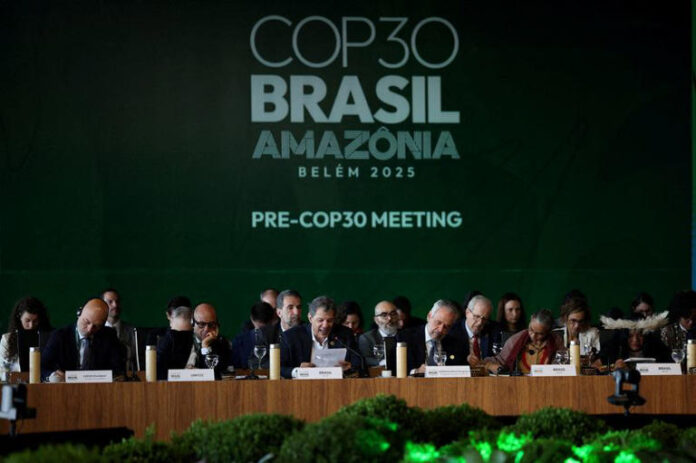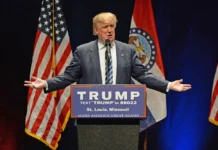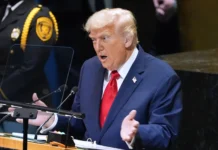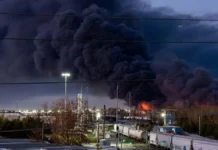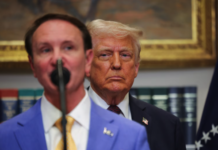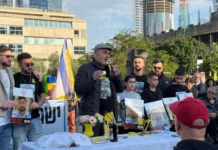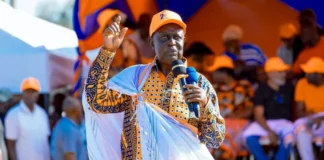Brazil on Monday launched three weeks of events leading up to the COP30 climate summit, aiming to rally global resolve against climate change despite a backdrop of economic turbulence and wavering U.S. commitments.
In São Paulo, business leaders opened the week by calling for stronger government incentives to finance the clean energy transition. In an open letter coordinated by the We Mean Business Coalition, 35 organizations representing 100,000 companies urged policymakers to “urgently” back renewable energy over fossil fuels.
“It’s a recognition from business of the importance of multilateralism and raising ambition,” said Maria Mendiluce, CEO of the coalition.
Meanwhile, mayors and governors gathered in Rio de Janeiro for a Local Leaders Summit; though the event risks being overshadowed by anger over a violent police crackdown the previous week. Britain’s Prince William is also in Rio to host his annual Earthshot Prize ceremony honoring environmental innovation.
Yet this year’s climate diplomacy faces stiff headwinds. Global cooperation has slowed amid wars and geopolitical rifts. New U.S. tariffs have shaken financial markets, while policy reversals on clean energy have unnerved investors.
Even as renewable energy grows cheaper than fossil fuels, many nations are juggling competing priorities such as food security and AI development.
Still, many executives insist clean energy is sound economics. “It makes strong business sense and ensures energy security and competitiveness,” said Gonzalo Sáenz de Miera, head of Spain’s Green Growth Group.
A Return to Rio Roots
Brazil’s hosting marks 33 years since the 1992 Rio Earth Summit, which produced the first global treaty to confront climate change.
The annual COP meetings have since evolved into sprawling forums uniting rich and poor nations, scientists and activists—but carbon emissions continue to rise, with nearly 40 percent of industrial-era emissions released since that treaty.
Attendance at COP30 may reflect the shifting mood. Fewer than 60 world leaders are expected in Belém for the November 6–7 leaders’ summit, compared with more than 80 at last year’s COP29 in Baku and over 100 at Dubai, Sharm el-Sheikh, and Glasgow.
Overall registration has also dropped. As of early October, about 12,200 participants had signed up—far fewer than the 54,000 who attended Baku or the 84,000 in Dubai. Limited hotels and high prices in Belém have forced some delegations to scale back or relocate events to São Paulo and Rio.
“It’s encouraging to see mayors and business leaders converging here, showing their commitment and looking for ways to accelerate action,” said Dan Ioschpe, chairman of Brazil’s Ioschpe-Maxion and coordinator of COP30 business initiatives.
Belém’s location is deliberate: Brazil wants to place the Amazon—and its Indigenous guardians—at the heart of the global climate agenda. A flotilla of Indigenous leaders is sailing down the Amazon River toward the city to deliver conservation demands to world leaders later this week.
Many plan to camp in the rainforest surrounding Belém during the talks—a reminder of what’s at stake when the planet’s largest carbon sink meets the world’s smallest patience for inaction.









